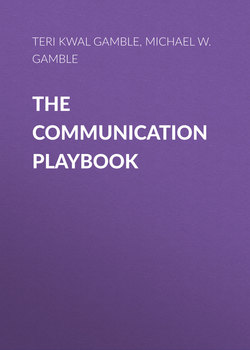Читать книгу The Communication Playbook - Teri Kwal Gamble - Страница 209
На сайте Литреса книга снята с продажи.
Profanity and Obscenity
ОглавлениеThe use of profane words comprises about half a percent of a typical person’s vocabulary.61 Virtually every language contains its share of profane words. Why? Researchers say it’s because by using profanities, we are able to express what ordinary words don’t enable us to express on their own. Also, hurling profanities enables us to convey our emotions symbolically rather than physically. When accepting an award on live television, rock singer Bono commented, “This is really, really f—king brilliant.” An NBC news broadcaster, not realizing they were still on the air, yelled at the cohost. “What the f—k are you doing?” Students at one college screamed obscenities at a recent college basketball game, targeting a player who had chosen not to play for their school, yelling vulgarities at him and calling his relatives whores.62 Has it become acceptable to utter obscenities in public, including in the media?
According to Timothy Jay, a leading scholar on cursing in the United States, contemporary teenagers are more likely to use expletives casually, uttering swear words 80 to 90 times each day. Because the lines between public and private language are blurred, today’s teens have more difficulty than teens in previous generations adjusting their conversation to fit their audience.63
